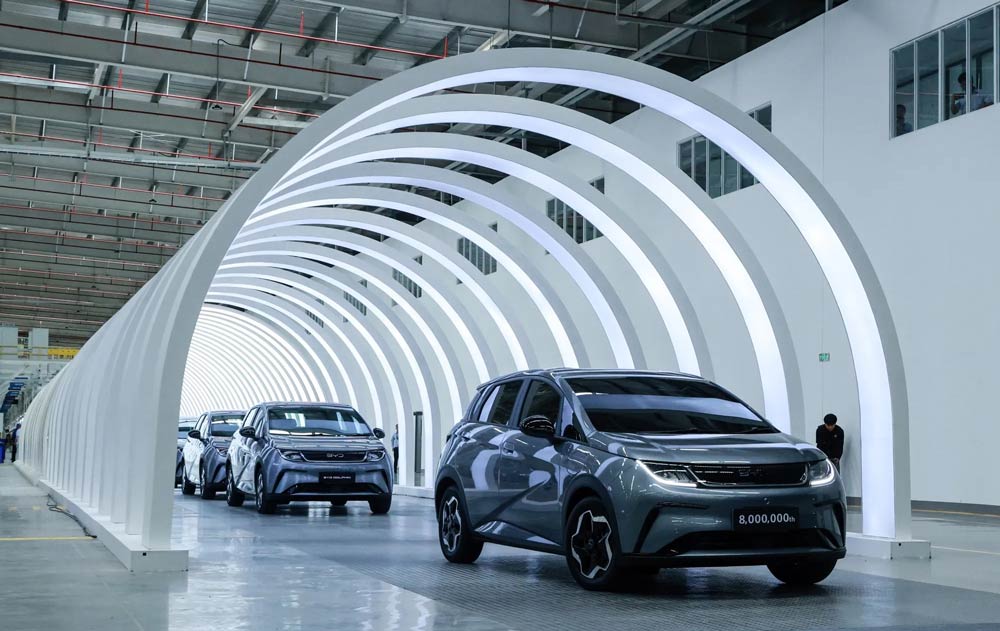For the first time, China’s electric vehicle (EV) industry is investing more in overseas factories than in domestic projects, according to a report published by the U.S.-based consulting firm Rhodium Group. This marks a significant shift in strategy as Chinese automakers and battery manufacturers ramp up their global presence to compete with industry giants like Tesla and address challenges in their home market.
A Global Approach to EV Manufacturing
The Rhodium Group report revealed that 74% of the announced overseas investments are directed toward battery factories, with assembly plants also seeing rapid growth. This push is driven by intense competition in the Chinese domestic market and rising tariffs on exports, making overseas production more appealing.
Chinese companies are also responding to regulatory barriers in key markets like the European Union. By establishing local manufacturing operations, they aim to secure the support of foreign governments and improve their chances of market entry.
Decline in Domestic Investment
In contrast to overseas expansion, domestic investment in China’s EV manufacturing sector has seen a dramatic decline. After peaking at over $90 billion in announced projects in 2022, domestic spending dropped to $41 billion in 2023 and further plunged to $15 billion in 2024.
While overseas investments remain lower in absolute terms, they narrowly surpassed domestic investments in 2024. This trend highlights China’s focus on expanding its EV supply chain globally, despite the greater risks associated with foreign projects.
Challenges in Overseas Projects
Despite the increased focus on international markets, the Rhodium report warns of significant challenges. Only 25% of all announced overseas manufacturing plans by Chinese EV companies have been completed, compared to a 45% completion rate for domestic projects. Furthermore, overseas projects are twice as likely to be canceled.
Chinese firms must also navigate concerns from Beijing, including fears of technology leakage, job losses, and the hollowing out of domestic industries. These concerns could lead to tighter government restrictions on outbound investments in strategic sectors.
Notable Projects and Expansion
Several Chinese EV companies have already made significant strides in their overseas ventures:
- Great Wall Motor (GWM) recently opened its first factory in Brazil and is considering additional plants in the region.
- BYD, one of China’s largest EV makers, began production at its first Brazilian factory in July, even after facing fines for labor practices earlier in the year. BYD has sold over 545,000 cars overseas this year as of July, surpassing its total exports for 2024.
- Envision, a Chinese battery supplier, started production at its first factory in France earlier this summer.









